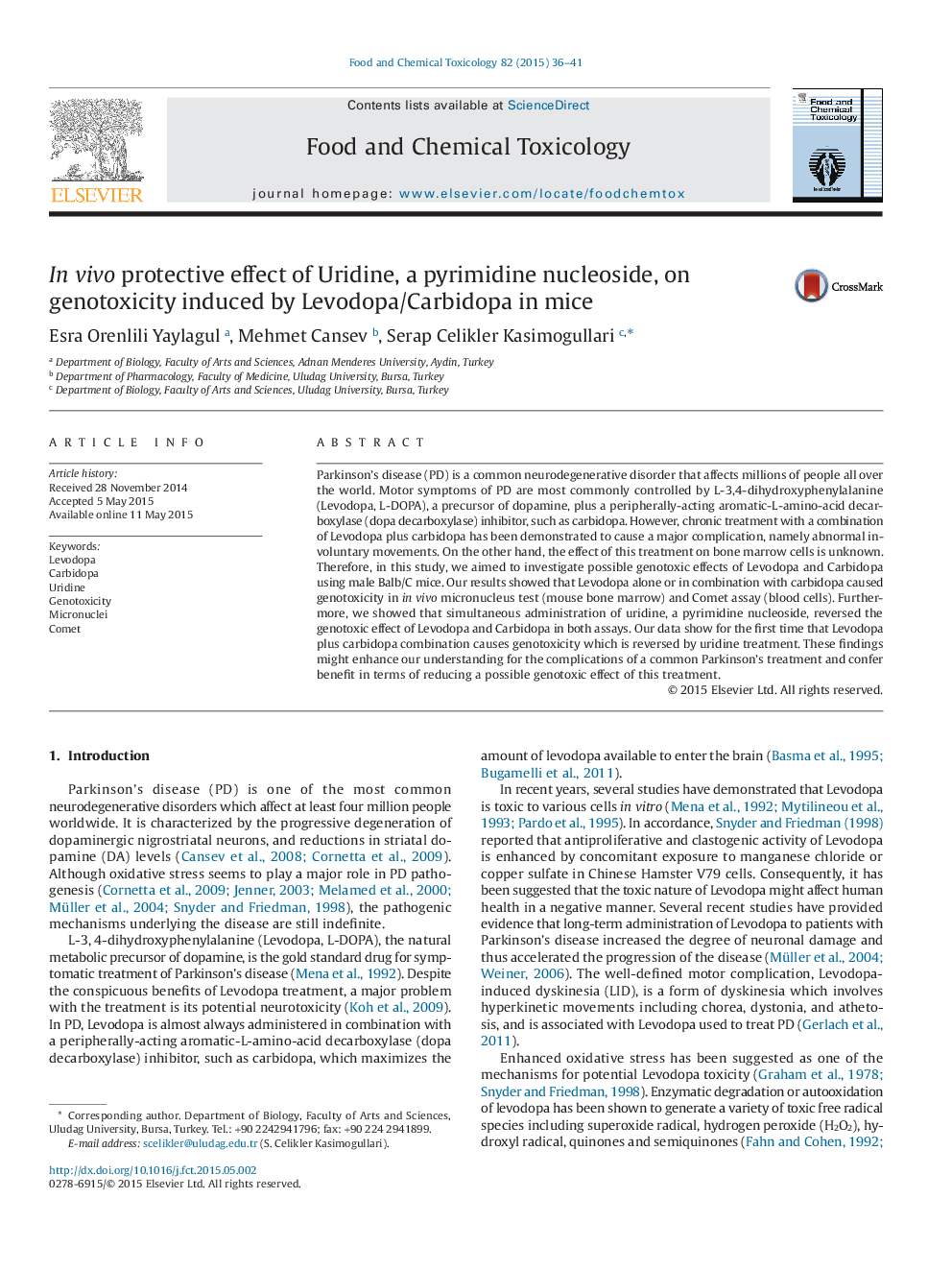| Article ID | Journal | Published Year | Pages | File Type |
|---|---|---|---|---|
| 5849777 | Food and Chemical Toxicology | 2015 | 6 Pages |
â¢The genotoxic potency of Levodopa/Carbidopa was investigated in mice.â¢Micronucleus and Comet assays were used for this purpose.â¢Levodopa/Carbidopa was found to be genotoxic in mouse bone marrow cells.â¢Uridine treatment protected bone marrow cells from genotoxicity.
Parkinson's disease (PD) is a common neurodegenerative disorder that affects millions of people all over the world. Motor symptoms of PD are most commonly controlled by L-3,4-dihydroxyphenylalanine (Levodopa, L-DOPA), a precursor of dopamine, plus a peripherally-acting aromatic-L-amino-acid decarboxylase (dopa decarboxylase) inhibitor, such as carbidopa. However, chronic treatment with a combination of Levodopa plus carbidopa has been demonstrated to cause a major complication, namely abnormal involuntary movements. On the other hand, the effect of this treatment on bone marrow cells is unknown. Therefore, in this study, we aimed to investigate possible genotoxic effects of Levodopa and Carbidopa using male Balb/C mice. Our results showed that Levodopa alone or in combination with carbidopa caused genotoxicity in in vivo micronucleus test (mouse bone marrow) and Comet assay (blood cells). Furthermore, we showed that simultaneous administration of uridine, a pyrimidine nucleoside, reversed the genotoxic effect of Levodopa and Carbidopa in both assays. Our data show for the first time that Levodopa plus carbidopa combination causes genotoxicity which is reversed by uridine treatment. These findings might enhance our understanding for the complications of a common Parkinson's treatment and confer benefit in terms of reducing a possible genotoxic effect of this treatment.
